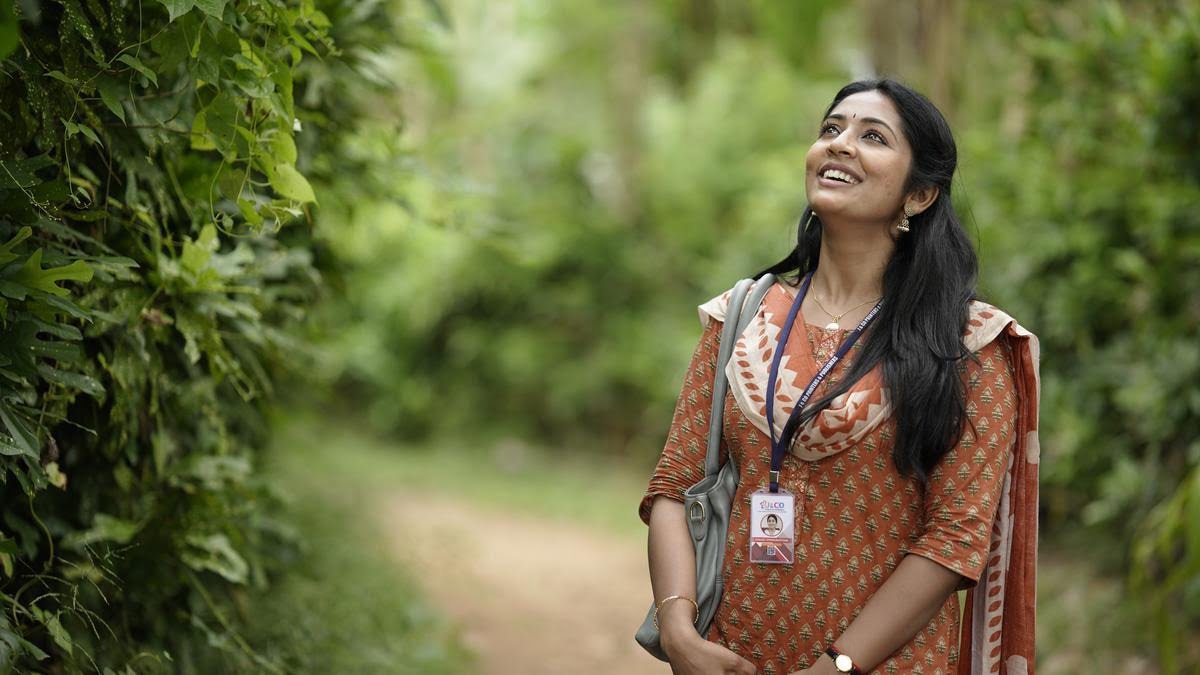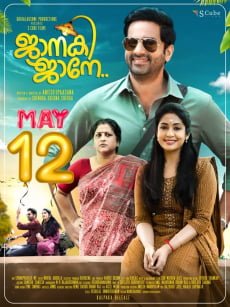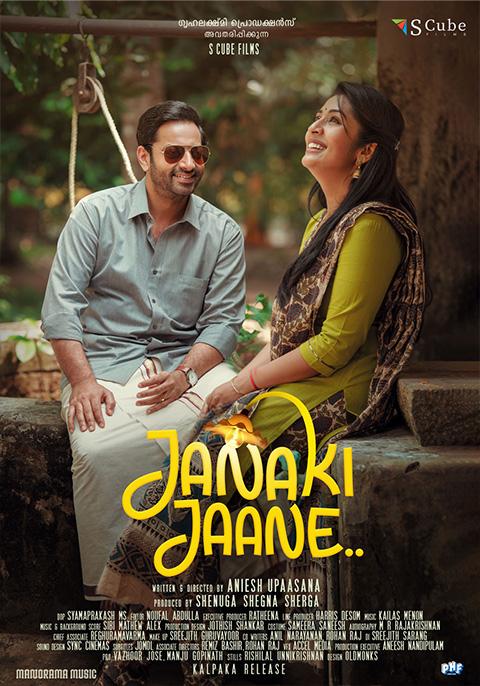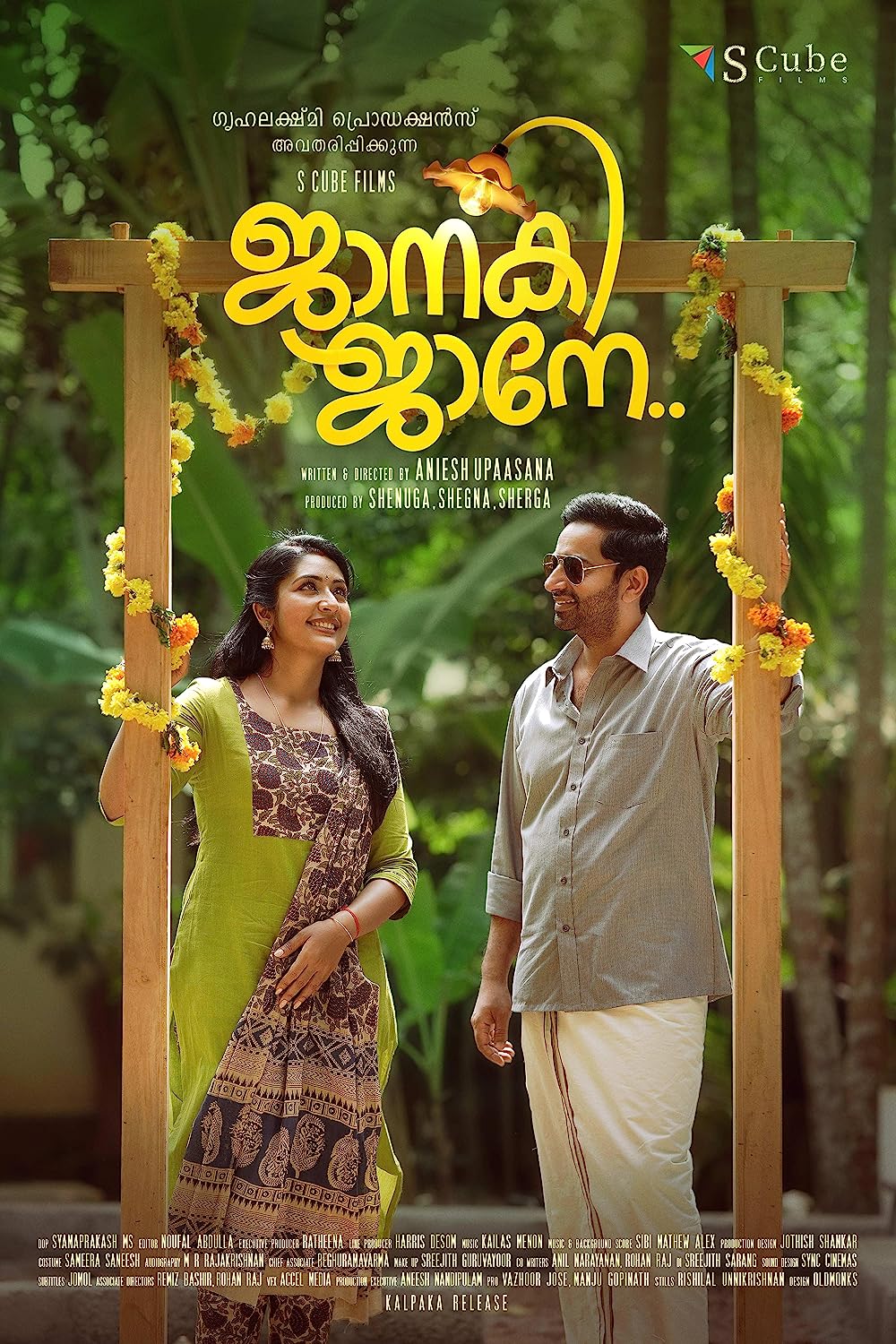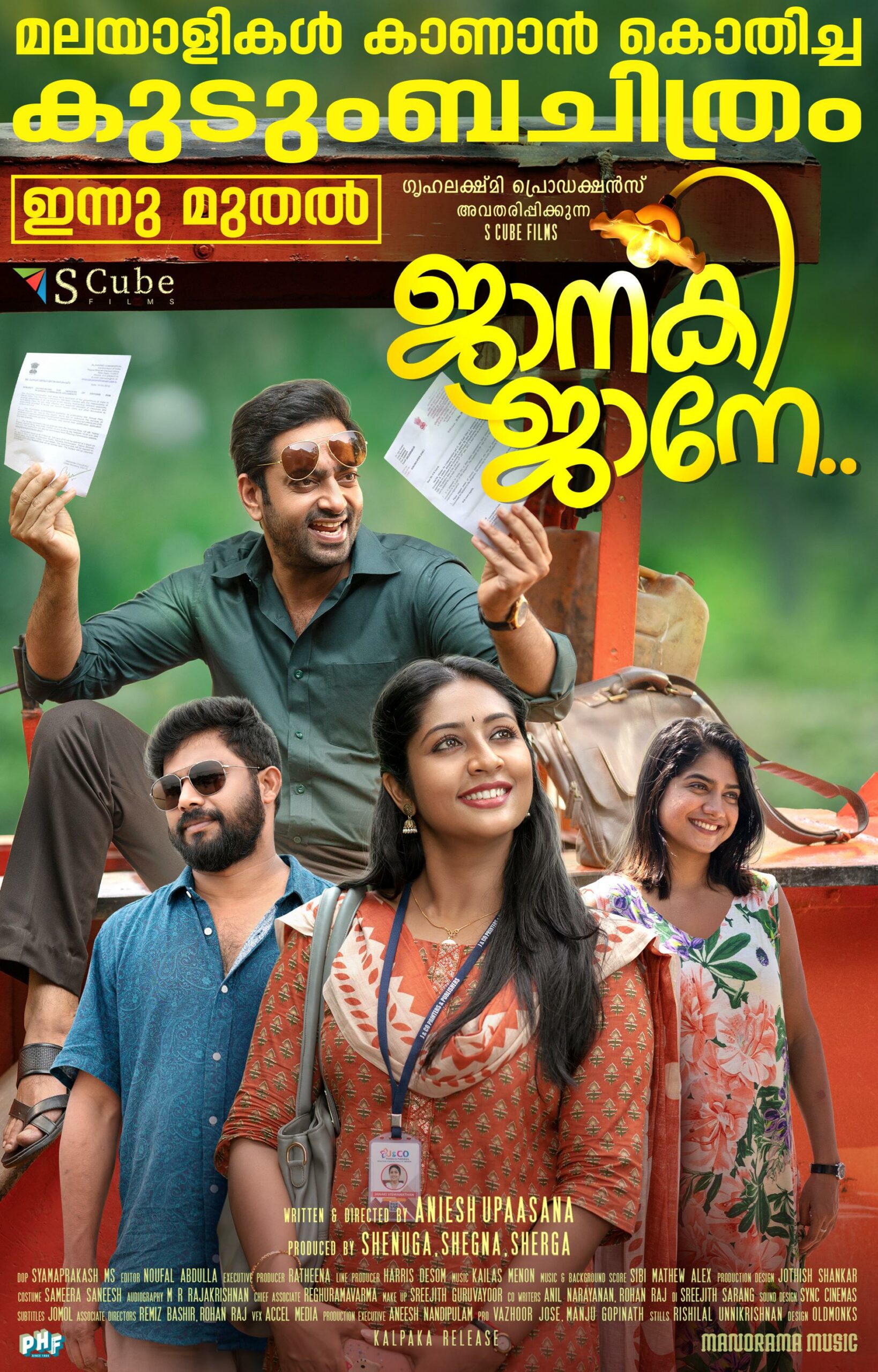Janaki Jaane released this year, directed by Aneesh Upasana, is a film that speaks about mental health, childhood trauma, media and politics as well. Director Aneesh Upasana, who co-wrote it with Anil Narayanan and Rohan Raj introduces us to Janaki, played by actress Navya Nair, a small-town woman who struggles with her irrational fears of darknes, fears of being alone, fear to walk alone through an empty road, fear to ask for things and so on. She is always accompanied by her mother or a friend, whom she clings to, as she is afraid of the dark and being alone in public or confined places. The other actors in the film including Johny Antony, Anarkali Marikar, George Kora, Sharaf U Deen, etc played an inevitable role in taking the story forward.
The director and the cinematographer have framed the film in a 90s world showcasing the beauty of the small towns in Kerala and their lives. Unlike many other movies in Malayalam cinema that showcases mental health as a humourous element or like movies that purely insisted on taking the dark side to show the realities of mental health, the director’s stance is somewhere on the middle ground.
The movie starts with the protagonist Janaki facing an anxiety attack and shows Unni Mukundan, played by Saiju Kurup, helping her reach home safely and eventually falling in love with her. Right from the first scene which is also an introduction scene, the movie highlights Janaki’s mental health issues and shows how it is tangled in all her life activities and people she relates to.
Right from the first scene which is also an introduction scene, the movie highlights Janaki’s mental health issues and shows how it is tangled in all her life activities and people she relates to.
Janaki is an employee at an offset press and has been using cliche reasons to turn down every marriage proposal that comes her way. But she eventually falls for the character Unni and ends up getting married to him after they talk about her fears.
Why we all need a support system
The spouse character, Unni Mukundan falls in love with her after helping her during the anxiety from the first encounter with the heroine. He is very well aware of her mental health issues and fears she has got within. Gradually we can see how he takes her fear of darkness as a shock on the night of their marriage but instead of making it humourous or serious, we see a sense of comfort that he gives to her.
Breaking the usual pattern of seeing mental health issues as a problematic disorder and blaming it on the mentally ill person, we see a sense of acceptance and understanding among the couple which is much needed for anyone who goes through a tough time. We can also see how their marriage is going great until they encounter a difficulty that is related to the election campaign in their district. The couple were compelled to live somewhere far for some time and they landed at Varkala.
Then, towards the second half, come two new characters who play a vital role in shaping Janaki to face her fears. A couple who travels, Maria and Manu, gradually help Janaki change into a person who can face her fears, who is no more scared of darkness and is ready to face the political encounter that made her move away.
Janaki Jaane released this year, directed by Aneesh Upasana, is a movie that spoke about mental health, childhood trauma, media and politics as well
It is of course, great to have a support system that comes as strangers or friends or anyone. But is that enough? Not every one feels things the same, the degree of fear, worries, pain differs. Asking for professional help cannot be ignored. Healing is a long journey, that must be experienced by oneself at one’s own pace.
We all need a support system. Some also need extra care and medical help to heal and live in peace. The movie could have talked about that as well as the many myths that tag along the mental health issues.
Janaki Jane shows how breaking the stigma can be tough
In a scene after the wedding, we can see an aunt of the husband trying poke her nose asking if Janaki is taking any medicines for her “disease” for which she feels upset and talks about it to her husband. The aunt here represents the part of the society constantly trying to turn conversations about mental health that is supposed to be open and healthy into a taboo.
One good thing about the movie is that, the movie talks about a small-town woman, who looks after her family and herself. There are many people, especially woman who are not aware of the reason behind many of the anxiety, panic attacks or any other health issues they face. Some are not even aware of having the need to ask for help. Coming from a place of no privilege, Janaki is one among many out there in the society who need help and support from everyone but have many obstacles in front of them while reaching their goals. Everyone deserves mental health help irrespective of their gender, social status, age, financial status for a better life.
Did Janaki Jaane divert from the core point of mental health awareness?
Janaki Jaane also talks about the political environment during the election, the media consumption, how everything can be turned or twisted according to the media or political strategies efficiently and how these all can affect the mental health of many people linked to it.
With some critical taps on the voyeuristic nature of television and online media outlets that can hurt people and affect their mental health, a section of the movie leans towards the contemporary way of handling such issues that is common in many other contemporary films.
The movie brings up the political plotline connected to her mental health, as a conflict point to help Janaki overcome her fears or worries, which is the core element of the movie. But this turns out to be the weakest points that actually diverts the whole aim of the movie.
But nevertheless, the building of character arc does not take Janaki to a point that talks about mental health as a core subject. Rather, the movie mainly focuses on the conflict regarding the media and politics surrounding her. There is no scene with her taking a step forward in addressing the need for help or having an open conversation with a psychologist, which could have been a point that could have made the audience, especially people like Janaki, take a step towards addressing the mental health issues they might be facing.
Through the backstory behind Janaki’s fears, her childhood trauma comes as an obvious explaination.
Through the backstory behind Janaki’s fears, her childhood trauma comes as an obvious explaination. It can be a thought evoking instance where many like Janaki might think about as a reason behind their fears or worries that haunts them throughout. But the movie barely succeeds in drawing the different types of audience into mainly focusing on this.
Bringing such a promising point of conversation into a movie plot using humour can be appealing to many. But it also can fail to address the seriousness of it as well. In short, the movie, Janaki Jaane is an attempt that brings out a mixture of emotions, but could have had a more effective plotline and screenplay to focus on the aim of the movie, that is to address the mental health of the protogonist Janaki.
